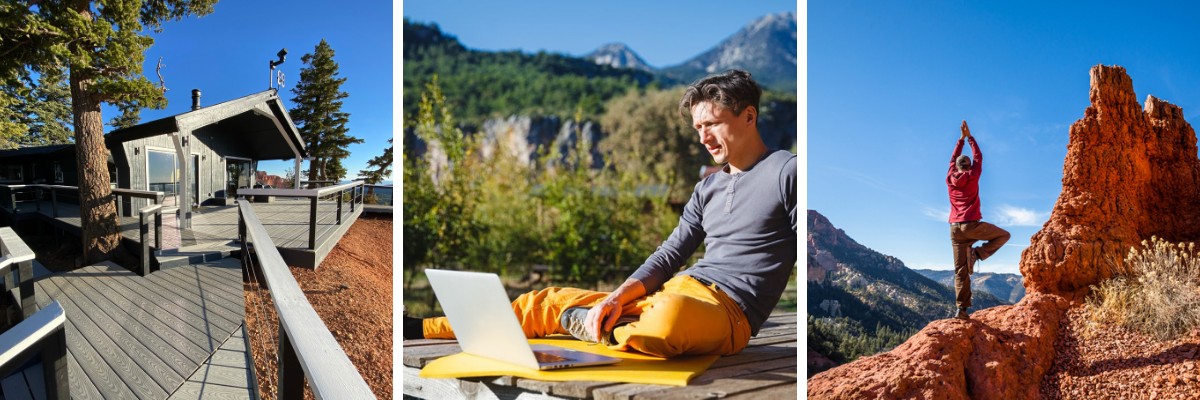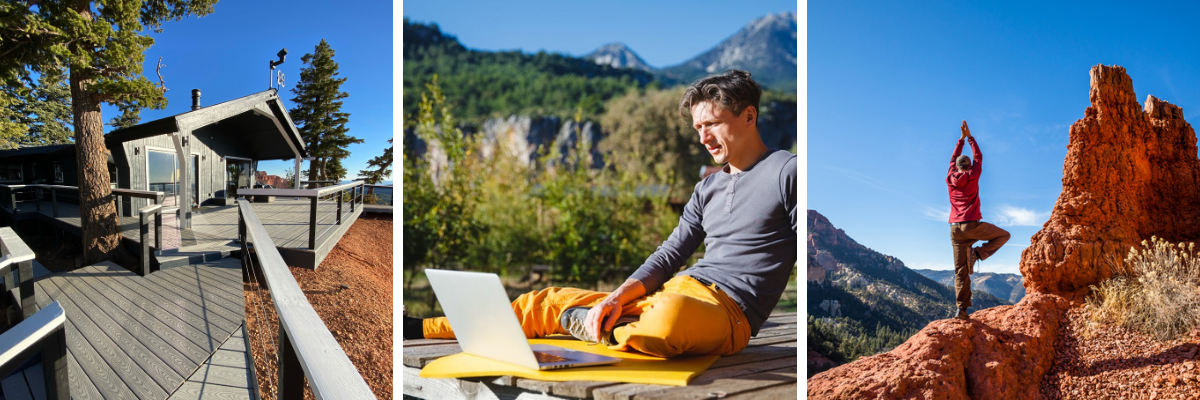We spend a lot of time discussing the benefits of “live-work-play” a seemingly mythological blend of activities that are purported to create feelings of wellbeing and balance. Live-work-play is touted in digital nomad lifestyles, neighborhood development initiatives, and more. Here’s the break-down:
- Live – The activities and essentials that make up our day-to-day experience, including routine household tasks, schools, grocery shopping, and more.
- Work – Our professional livelihood and the pursuit of it; is often the heavily skewed part of the equation.
- Play – The leisure activities that are done for the simple joy, relaxation, and pleasure they bring. For example, gardening, arts, and crafting, walking and hiking, sports and recreation, puzzles and games, the list goes on as this is a rather broad category. These are individualized to the pursuit of one’s life (because we all don’t share the same definition of fun).
The average American works 34.4 hours a week, although it can often seem like more depending on your job activities and requirements, as well as if you work out of the bounds of a normal business day and “catch up” on the weekends. As the boundaries between live-work-play get blurred with growing work-from-home numbers, the time set aside for leisure activities becomes all the more important.
“Leisure is critical across the age-span; it is not just for retirees. As sleep recharges the body, time spent decompressing from constant demands energizes our psyche,” wrote Dr. Shoba Screenivasan and Dr. Linda E. Weinberger in Psychology Today. “Leisure can reduce stress as well as encourage socialization and the development of relationships.”
Play is a quintessential part of our nature and wellbeing, stacking up a list of benefits in both cognitive and physical health categories.
Mental Health Impact
Experiencing the freedom that play stimulates fires up feelings of self-empowerment, improved self-esteem, empowerment, and control. Screenivasan and Weinberger say it can also stimulate motivation, assist in recharging or coping, function as a reward system, and contribute to feelings of a meaningful, well-rounded life.
To feel the full emotional and cognitive benefits of leisure activities should be fun, facilitate a positive connection with the world, encourage freedom and creativity, and enhance learning.
Physical Health Impact
Going for a walk or a hike reduces stress as well as benefits biomotor abilities. Biomotor abilities contribute to your biomechanics potential, which is a fancy way of saying the ways in which your body moves and can continue to improve for optimal functioning — the five biomotor abilities include speed, strength, flexibility, coordination, and endurance.
Activities often bring together more than one of these abilities. They can be worked simultaneously and improved simply by engaging in playtime. As mentioned previously, some type of walking, running, or outdoor cardio are all fantastic for biomotor abilities, as is playing sports, yoga sessions, jumping on a trampoline, skiing and snowboarding, chasing your kids around the backyard, and swinging on the playset — it is what gets you moving and powers your body through spontaneous and mindful development.
In conclusion, there are cognitive and physical benefits to prioritizing fun and making it an equal part of the live-work-play equation. Live-work-play is not just an altruistic marketing term, it is also a real way to balance and pursue a life full of meaning, joy, and health.








